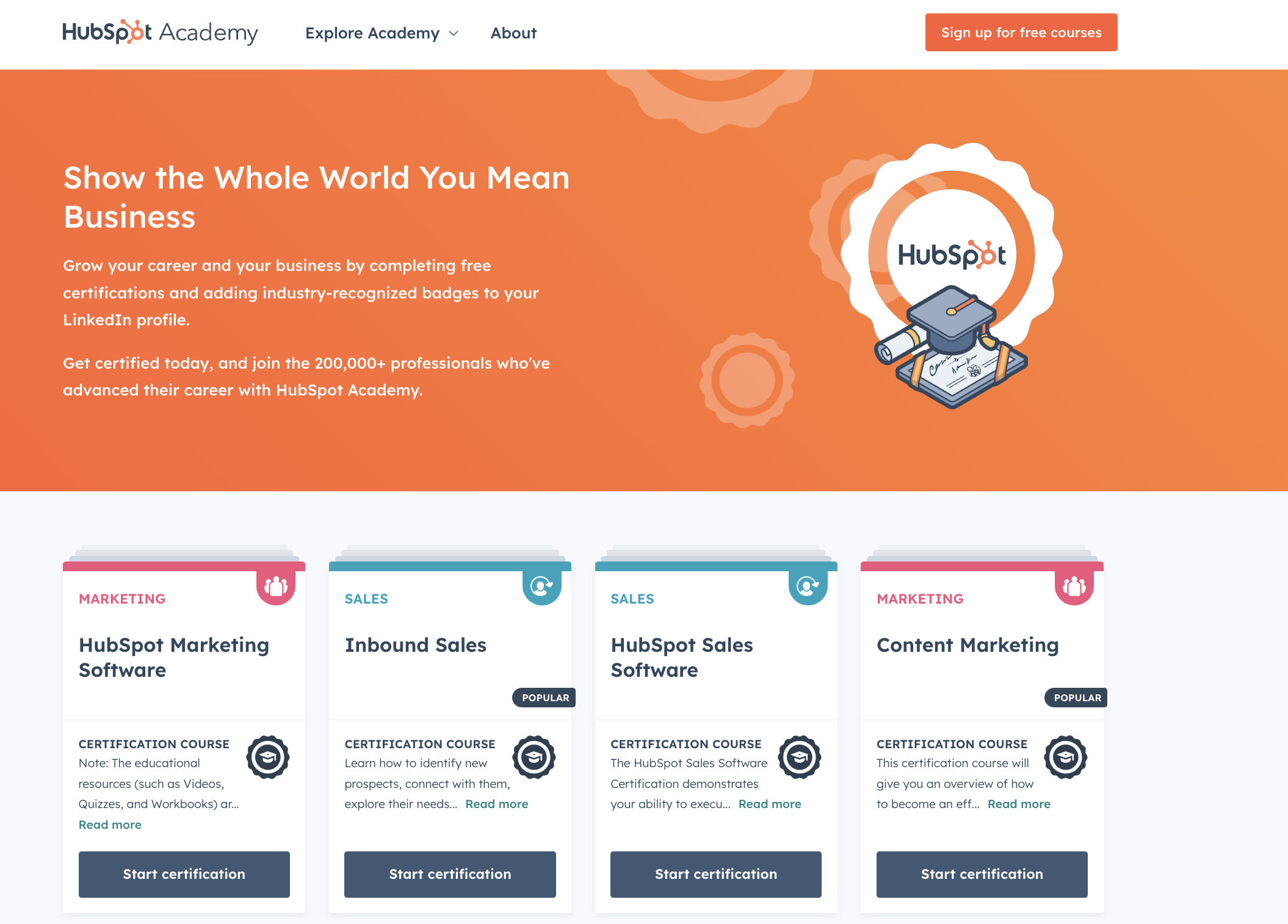
Thinking about a career change and considering product marketing management? Read on. In this article, you will find all the information you need to start taking your first steps.
Table of Contents
What is The Role of a PMM About?
The role of a Product Marketing Manager encompasses a wide range of responsibilities, all aimed at bridging the gap between the product, sales, and marketing teams to drive the success and adoption of a product.
A PMM plays a crucial role in understanding and presenting the product’s value to the market, ensuring that it meets the needs and expectations of customers. Here’s a detailed breakdown of the core responsibilities:
Market Research and Customer Insights
- Understand the Market: Conduct thorough market research to grasp the competitive landscape, market trends, and the overall industry environment. This includes analyzing competitors and understanding what makes your product stand out.
- Customer Insights: Gather and analyze customer feedback, preferences, and behavior through surveys, focus groups, and usage data. Understanding the customer deeply enables PMMs to tailor marketing strategies effectively.
Product Positioning and Messaging
- Define Product Positioning: Establish how a product fits into the market and its unique value proposition. PMMs determine the key benefits and features that will resonate most with the target audience.
- Craft Messaging: Develop clear and compelling messaging that communicates the value and benefits of the product to the target audience. This messaging is used across marketing materials, product documentation, and sales scripts.
Go-to-Market Strategy
- Launch Planning: Design and execute go-to-market plans for new products or features. This includes coordinating launch activities across multiple teams (sales, marketing, product development) to ensure a unified and impactful market entry.
- Sales Enablement: Provide the sales team with the necessary tools, materials, and training to sell the product effectively. This might include sales decks, FAQs, product demos, and competitive battle cards.
Cross-functional Collaboration
- Bridge Teams: Act as a liaison between the product, sales, and marketing teams to ensure alignment on product strategy, features, and marketing campaigns.
- Feedback Loop: Facilitate a feedback loop between customers, sales teams, and the product development team to continually refine and improve the product based on market feedback.
Marketing Execution
- Content Creation: Oversee the development of marketing and promotional materials, such as website content and SEO positioning, blog posts, case studies, and videos, that highlight the product’s features and benefits.
- Campaign Management: Plan and execute marketing campaigns to promote the product, including digital marketing, events, and public relations efforts. Analyze the performance of these campaigns to optimize future marketing strategies.
Market Analysis and Strategy
- Monitor Performance: Track the performance of the product in the market, analyzing sales data, market share changes, and customer satisfaction metrics.
- Strategic Planning: Use insights from market analysis to inform product development roadmaps and marketing strategies. Identify opportunities for growth, expansion, or product enhancements.
Which Skills Do I Need to Be a Product Manager?
Becoming a Product Marketing Manager involves a mix of education and skills development. Here’s a step-by-step guide to help you navigate this career path:
1. Educational Background
The path to becoming a Product Marketing Manager isn’t limited to a single field of study, as the role requires a blend of marketing, an understanding of product management, and the ability to strategize and communicate effectively. However, some areas of study can provide a strong foundation and make you a more compelling candidate for PMM roles. Here are a few disciplines you might consider:
- Marketing
Studying marketing provides a comprehensive understanding of market research, consumer behavior, branding, digital marketing strategies, and communication — all crucial for a PMM role. It equips you with the skills to create and implement marketing campaigns that effectively communicate the value of a product to its target audience.
- Business Administration/Management
A degree in business administration or management offers broad training that includes marketing, finance, strategy, and operations management. This can be invaluable to understand how marketing fits into the broader business context and collaborate with various departments.
- Communications
A focus on communications can be particularly beneficial for the aspects that involve messaging, content creation, and overall communication strategy. This discipline helps in crafting compelling narratives around products and ensures that marketing messages resonate with the target audience.
- Psychology
Understanding consumer psychology can be a powerful tool. This field of study helps you grasp how consumers think, what motivates their purchasing decisions, and how to influence their behavior through marketing strategies.
Turn website traffic into sales-ready leads
- Identify high-intent visitors automatically
- Qualify leads before they reach your sales team
- Convert traffic without adding friction or forms

- Computer Science/Information Technology
If you’re aiming to work in the tech industry, a background in computer science or information technology can be extremely beneficial. Understanding the technical aspects of the products you’re marketing can help you communicate more effectively with both the product development team and potential customers who have technical backgrounds.
2. Develop Key Skills
- Marketing and Business Acumen: Understand basic marketing principles, market research methods, and strategic planning. Business acumen, including understanding market dynamics and customer needs, is critical.
- Communication Skills: Develop excellent written and verbal communication skills. You’ll need to articulate product value propositions and communicate effectively with both internal teams and external stakeholders.
- Analytical Skills: Be able to analyze market trends, consumer behavior, and campaign performance. Proficiency in data analysis tools and platforms can be a significant advantage.
By the way, Have you heard about this tool?
Knowing Pathmonk Accelerate can enhance your job prospects in product marketing by equipping you with knowledge of cutting-edge AI and automation tools designed to optimize online customer journeys and increase conversion rates. Demonstrating familiarity with such tools shows potential employers your proactive approach to leveraging technology for marketing efficiency, a valuable skill set for any product marketing role. It signals your ability to stay ahead of digital marketing trends and apply innovative solutions to drive product growth.
Increase +180% conversions from your website with AI
Get more conversions from your existing traffic by delivering personalized experiences in real time.
- Adapt your website to each visitor’s intent automatically
- Increase conversions without redesigns or dev work
- Turn anonymous traffic into revenue at scale

- Technical Skills: For tech companies, understanding the product’s technology can be crucial. You don’t need to be an engineer, but a basic understanding of what the product does and how it fits into the market is essential.
- Strategic Thinking: Learn to think strategically about market opportunities, product development, and brand positioning.
- Collaboration: Product Marketing Managers often work at the intersection of product, sales, and marketing teams. Cultivating strong teamwork and collaboration skills is crucial.
- Customer Focus: Develop a deep understanding of customer needs, preferences, and behaviors. Customer insights should guide all your marketing efforts.
Download our free template to develop your customer persona!
3. Continued Learning
- Certifications: Look for certifications that can supplement your degree, such as digital marketing, product management, or data analysis certifications. Platforms like Google, HubSpot, and Pathmonk Academy offer courses that can bolster your resume.

- Workshops and Seminars: Participate in industry-related workshops and seminars to stay up-to-date with the latest marketing trends and tools.
- Networking: Engage with professionals in the field through internships, networking events, and professional social media platforms like LinkedIn. This can provide insights into the role of a PMM and the skills most valued in the industry.
The Best Ways to Gain Experience
Build Your Brand and Network
- Professional Networking: Attend industry conferences, workshops, and events to connect with peers and industry leaders.
- Online Presence: Establish a professional online presence, particularly on LinkedIn, to share your insights, join discussions, and showcase your achievements.
Document Your Work: Create a portfolio that showcases your marketing projects, campaigns, writing samples, and any strategies you’ve developed. Include metrics or results where possible to demonstrate the impact of your work.
Refine Your Approach
- Revise Your Resume and Cover Letter: Ensure they are tailored to each application and highlight your most relevant experiences and skills.
- Expand Your Search: Consider a wider range of roles, industries, or locations. Sometimes, the right opportunity lies in places you haven’t yet considered.
Use Multiple Job Search Platforms: Don’t limit yourself to one job search website. Explore niche job boards, company career pages, and professional networking sites like LinkedIn.
Put Yourself to Work
- Look for internships in marketing, product management, or related fields. Internships at companies that develop products similar to those you’re interested in marketing can provide relevant experience and industry insight.
- Positions such as Marketing Coordinator, Content Marketer, or Sales Representative can help you build essential skills in understanding customer needs, creating marketing content, and communicating product benefits.
- Start your projects or take on freelance work that allows you to practice product marketing skills. This could involve helping small businesses or startups with their marketing strategies, which can be a great addition to your portfolio.

- Participating in open-source projects or community initiatives can give you practical experience in marketing and promoting products.
- Seek out a mentor who is currently working in product marketing. A mentor can provide guidance, feedback, and advice on how to navigate your career path.
To Sum Up
Becoming a Product Marketing Manager is not just about understanding the market and mastering the art of communication; it’s about becoming a visionary for the product you represent. Your journey will require creativity, strategic thinking, and a relentless focus on your customers. Dive into learning, seek out mentors and experiences that stretch your abilities, and remember that every step, every bit of knowledge gained, is propelling you toward your goal.
So, gather your resources, believe in your potential to make a significant impact, and step forward with determination. The path to becoming a PMM is rich with opportunities to shape the future of products and markets. Go for it!
FAQS
What Is the Salary Of a Product Marketing Manager
In the United States:
- Entry-Level: For those just starting out or with less than a few years of experience, salaries can range from approximately $60,000 to $90,000 per year.
- Mid-Level: With several years of experience, a PMM can expect to earn between $90,000 and $130,000 annually.
- Senior-Level: Experienced PMMs in senior positions, or those with specialized expertise in high-demand sectors, might see salaries ranging from $130,000 to $160,000 or more. In some cases, especially in high-cost living areas or at large tech companies, this can exceed $200,000 when including bonuses and equity.
Is Product Marketing Stressful?
Product marketing, while presenting its challenges, is fundamentally curiosity, creativity, and innovation. Here’s why it’s more fascinating than stressful:
- Creative Playground
Product marketing offers an incredible canvas for creativity. From designing engaging marketing campaigns to crafting compelling stories around a product, you have the freedom to experiment and innovate. Each project is a chance to think outside the box and bring new ideas to life.
- Deep Market Insights
Imagine having a front-row seat to the ever-evolving market trends and consumer behaviors. Product marketing immerses you in the world of your customers, allowing you to understand their needs and desires deeply. This knowledge not only fuels better marketing strategies but also makes you a valued voice in product development.
- Cross-Functional Collaboration
You’ll collaborate with diverse teams—product development, sales, design, and more—creating a dynamic work environment. Each day brings new interactions and opportunities to learn from different perspectives. This collaboration fosters a rich learning environment that’s both stimulating and rewarding.
- Impact on Success
As a Product Marketing Manager, your strategies directly influence the product’s success in the market. Watching a product thrive because of your efforts is incredibly fulfilling. You’re not just promoting products; you’re shaping their journey and witnessing your strategies come to fruition.
- Continuous Learning
The field of product marketing is always evolving, meaning there’s always something new to learn. Whether it’s the latest in digital marketing techniques, new consumer insight tools, or emerging market trends, you’re at the cutting edge of marketing innovations. This continuous growth keeps the role fresh and exciting.
- Strategic Influence
You play a key role in bridging the product and the market, making strategic decisions that guide the product’s direction. This level of influence is not just interesting; it’s empowering. You’re in a position to make a significant impact on the company’s success and the value it delivers to customers.
- Variety of Challenges
Every product and market is unique, presenting a variety of challenges to solve. This keeps the role interesting and far from monotonous. You’ll enjoy the thrill of tackling new problems, testing solutions, and innovating in ways that keep you engaged and motivated.
Brand Manager VS. Product Marketing Manager
- Brand Manager: Focuses on the overall brand’s image, identity, and perception in the market. They develop and maintain the brand’s strategy, consistency, and reputation across all channels and products.
- Product Marketing Manager: Concentrates on marketing specific products. They handle go-to-market strategies, product positioning, messaging, and supporting sales teams to drive demand and product adoption.

